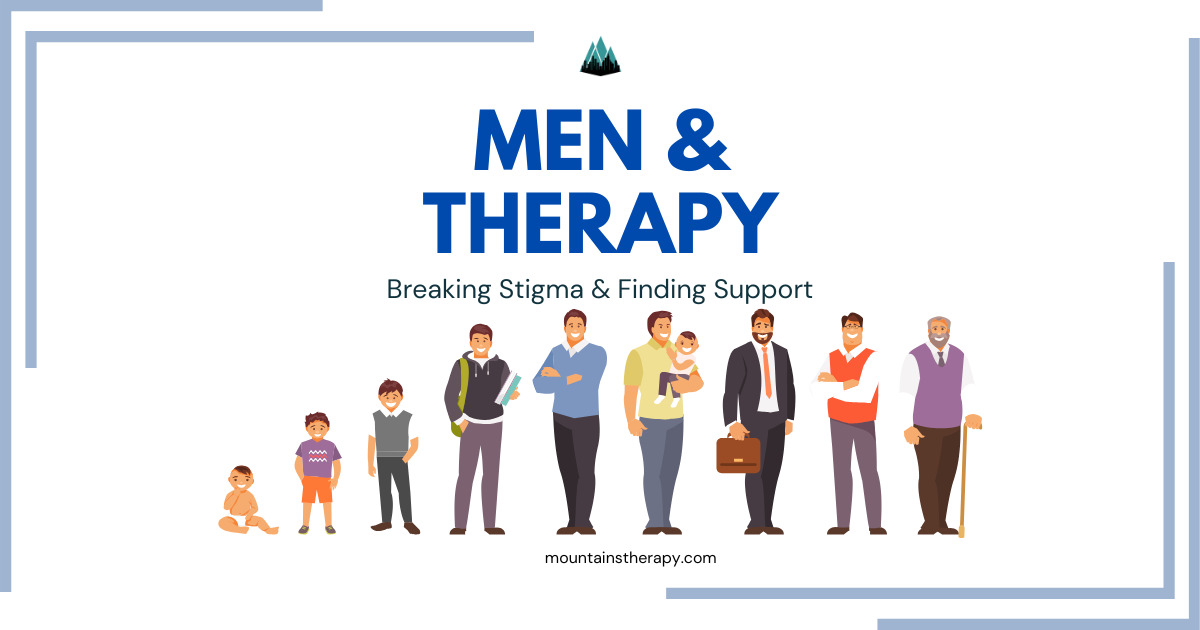Men and Therapy: Breaking the Stigma and Finding Support
Learn more about Individual Therapy for Men.
In This Blog, You’ll Learn:
- Why men's mental health matters
- Common misconceptions about men who need therapy
- Answers to questions like, "Can men go to therapy?"
- How Mountains Therapy in Montclair, NJ, provides support for men in counseling
Why Men's Mental Health Matters
In today's world, there is a growing recognition that men's mental health matters just as much as women's. Despite this, many men face societal pressures to "tough it out" or avoid addressing emotional challenges. This outdated narrative often prevents men from seeking the help they need. For men experiencing challenges related to substance use, alcohol use, or anxiety disorders, therapy can provide life-changing support.
Why Men Should Go to Therapy
Men who go to therapy often discover a supportive environment where they can process emotions, manage stress, and develop healthier coping strategies. Therapy is not about weakness; it’s about growth and strength.
If you’ve ever wondered why men need therapy, the answer is simple: Men face unique challenges, from societal expectations to work-life stress, that can benefit greatly from professional support. Seeking therapy shows courage and a commitment to bettering oneself, especially when addressing issues such as grief, depression, or chronic health issues.
Common Questions and Men and Counseling:
Can Men Go to Therapy?
Yes! The question "Can men go to therapy?" comes up more often than it should in 2025. The truth is, therapy is for everyone. Whether you're a man experiencing anger management difficulties, dealing with trauma or PTSD, or navigating relationships, therapy offers tailored tools to help you thrive. Options such as online individual therapy or online couples therapy ensure accessibility for men with busy schedules.\
Why Don’t Men Go to Therapy?
Unfortunately, many men ask themselves, "Why don't men go to therapy?" The answer often lies in stigma and a fear of being judged. At Mountains Therapy, we aim to break down these barriers. Therapy is not about labeling someone as "broken"—it's about helping men who need therapy build resilience and find balance, especially for those facing childhood trauma, verbal abuse, or domestic abuse.
How Therapy Helps: Why Men Go to Therapy
Therapy for Specific Challenges
- Alcohol Use and Substance Use - Therapist for alcoholism, Therapist for drug addiction
- Codependency
- Borderline Personality Disorder (BPD)
- Narcissistic Personality Disorder (NPD)
- Obsessive-Compulsive Disorder (OCD)
Effective Therapy Approaches for Men
These methods provide practical solutions to complex problems, helping men lead healthier and more balanced lives.
If you’re wondering why men should go to therapy, it’s because everyone deserves to lead a fulfilling life. Therapy provides tools to navigate life’s challenges with confidence, whether you’re managing chronic illness, addressing trust issues, or learning to understand different attachment styles such as anxious attachment or secure attachment.
Finding the Right Therapist: Best Therapist Montclair NJ
At Mountains Therapy, we’re proud to offer compassionate and professional care, right here in Montclair, NJ. Recently recognized as an award winner best therapist near me, our approach is rooted in understanding, empathy, and proven techniques such as mindfulness-based therapy, solution-focused therapy (SFT), and narrative therapy.
If you’ve been hesitant to start therapy, remember:
Men will therapy and can thrive when they do. Whether you prefer online family therapy or in-person sessions, our services are designed to meet your needs. Therapy is particularly effective for men addressing psychological abuse, emotional abuse, or working through trauma-focused cognitive behavioral therapy (TF-CBT) approaches. At Mountains Therapy in NJ, we understand that men therapy is a vital part of changing the narrative about mental health. Whether you're seeking support for yourself or encouraging someone else to take that step, remember—help is available, and change is possible.











